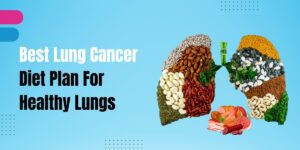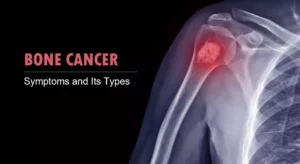Symptoms of Breast Cancer
Breast cancer is the most common type of cancer in women. It can occur in men as well but is much rarer than it is in women. Symptoms are different for everyone, so it’s important to be aware of the signs and call your doctor if you notice them.
Breast cancer symptoms are the most common type of cancer in women, and it’s important to be aware of the symptoms that can help identify cancer early. This article discusses some of the more common symptoms of breast cancer, what they mean, and how you can contact your doctor if you experience any.
Breast cancer is one of the most common cancers. Sometimes the signs and symptoms are easy to observe, but in other cases, they can be very subtle. Read on to learn about what these symptoms may be and how to identify them.
What is Breast Cancer?
Breast cancer is a type of cancer that forms in the tissues of the breast. There are two main types of breast cancer: ductal carcinoma and lobular carcinoma. Ductal carcinoma forms in the ducts that carry milk to the nipple, while lobular carcinoma forms in the lobules, which are the milk-producing glands. Breast cancer can also occur in other parts of the breast, such as in the fatty tissue or connective tissue.
There are a number of different symptoms that can be associated with breast cancer. The most common symptom is a lump or mass in the breast tissue. This lump may be painless, but it is often accompanied by other symptoms such as a change in the size or shape of the breast, nipple discharge, and changes to the skin on the breast, such as dimpling or redness. Breast cancer may also cause general symptoms such as fatigue, weight loss, and bone pain.
If you experience any of these symptoms, it is important to see your doctor for a diagnosis. Breast cancer is treated with a variety of methods, including surgery, radiation therapy, and chemotherapy. The type of treatment will depend on the stage of cancer and other
Types of Breast Cancer
There are several types of breast cancer, each with its own set of symptoms. The most common type of breast cancer is ductal carcinoma, which starts in the milk ducts. This type of cancer can cause a lump or thickening in the breast, nipple discharge, and changes in the appearance of the nipple.
Invasive lobular carcinoma starts in the milk-producing glands and tends to spread evenly throughout the breast. This type of cancer may not cause a lump or change in the breast tissue, but may instead cause changes in the skin of the breast, such as dimpling or redness.
Inflammatory breast cancer is a rare but aggressive form of cancer that can cause the breast to become red, swollen, and warm to the touch. This type of cancer often spreads very quickly and can be difficult to detect early on.
Signs and Risk Factors
There are a number of signs and risk factors associated with breast cancer. The most common symptom is a lump or mass in the breast tissue. Other symptoms may include changes in the size or shape of the breast, dimpling of the skin, nipple discharge, or a change in the appearance of the nipple. Breast cancer may also cause systemic symptoms such as fatigue, weight loss, or bone pain.
Risk factors for breast cancer include age, family history, personal history of certain medical conditions, and lifestyle choices. Women over the age of 50 are at an increased risk of developing breast cancer. Those with a family history of breast cancer or other cancers are also at increased risk. Certain medical conditions, such as obesity, diabetes, and certain hormone disorders can increase the risk of developing breast cancer. Additionally, lifestyle choices such as alcohol consumption and smoking can also increase the risk of developing this disease.

Treatment Options
There are a variety of treatment options available for breast cancer, and the best course of action will vary depending on the individual case. Some common treatments include surgery, radiation therapy, chemotherapy, and targeted therapy. Surgery is often the first line of treatment, and it may be followed by radiation therapy or chemotherapy. Targeted therapy is a newer type of treatment that is less invasive than traditional chemotherapy and often has fewer side effects.
There are many different treatment options available for breast cancer. The most common treatments are surgery, radiation therapy, and chemotherapy. Some women may also receive hormone therapy or targeted therapy. The type of treatment you receive will depend on the stage of your cancer, your overall health, and your personal preferences.
Surgery is the most common treatment for breast cancer. There are several types of breast cancer surgery, including lumpectomy, mastectomy, and lymph node removal. Your doctor will recommend the type of surgery that is best for you based on the stage of your cancer and your overall health.
Radiation therapy uses high-energy beams to kill cancer cells. It is typically given after surgery to help prevent cancer from returning. Radiation therapy can be given externally or internally. External radiation therapy is given using a machine outside of your body. Internal radiation therapy uses a radioactive device that is placed inside your body near the cancerous tissue.
Chemotherapy uses drugs to kill cancer cells. It is typically given as an intravenous (IV) infusion. Chemotherapy can be given before or after surgery, and it may be used in combination with other treatments such as radiation therapy.




